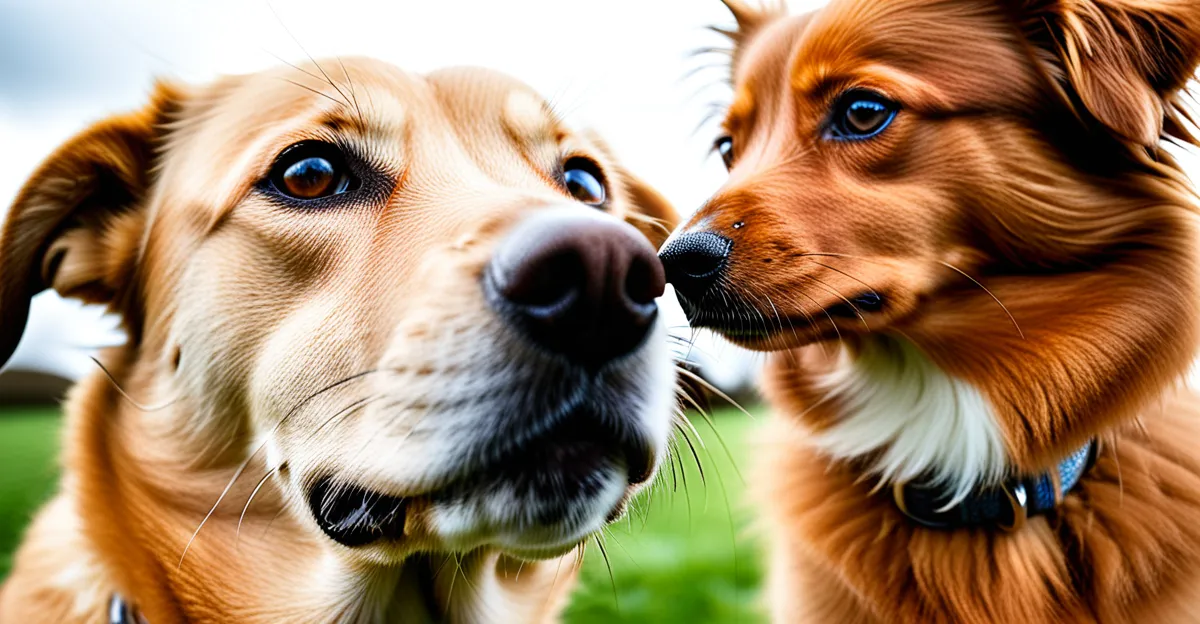Effective Steps for Socializing Your Pet in the UK
Successfully socializing pets is essential for their well-being and ensures harmonious interactions both at home and in public spaces. For UK pet owners, understanding how to navigate the socialization process can prevent behavioral issues and enhance your pet’s confidence around people and other animals.
The benefits of effective pet socialization UK efforts include reduced anxiety, improved obedience, and a happier daily experience for your pet. Start by introducing your animal to various environments gradually, such as parks, pet-friendly shops, or quiet neighbourhood streets. This exposure helps your pet adapt to different sights, sounds, and smells, which builds emotional resilience.
In parallel : How can you ensure a healthy diet for your pet in the UK?
A clear, step-by-step socialization process involves:
- Early introduction to new experiences suited to your pet’s age and temperament. Puppies, for example, benefit from socialization between 3 to 14 weeks, a critical period for imprinting positive encounters.
- Gradually increasing the complexity of social interactions, moving from familiar people and animals to strangers and larger groups.
- Using positive reinforcement such as treats or praise to create a pleasant association with social settings.
Selecting the right time and method is crucial. Avoid socializing when your pet is tired or hungry, as stress levels might rise. Also, consider breed and individual personality; while some pets adapt quickly, others may need slower, gentler introductions.
Also to read : How can pet owners in the UK reduce their carbon footprint?
Through thoughtful planning and consistent practice, UK pet owners can master socializing pets effectively, fostering well-mannered and confident companions.
Local Opportunities and Community Resources
Pet socialization classes UK-wide offer structured environments where UK pet owners can introduce their animals to new experiences under professional guidance. These classes focus on controlled interactions, helping pets build confidence while learning appropriate behaviours. Attending such sessions regularly aids in mitigating behavioural problems linked to fear or aggression.
In addition to formal classes, local pet groups provide invaluable opportunities for socializing pets. Many areas in the UK have dedicated clubs or informal meetups, allowing owners to connect and share experiences. These gatherings promote positive associations between pets and other animals, reinforcing lessons from training.
UK dog parks stand out as essential venues for natural socialization. Well-maintained, secure, and often divided by size or breed, these parks let dogs exercise and engage freely, enhancing their social skills and mental health. For example, large communal areas in towns or cities encourage diverse interactions that help pets adjust to different temperaments and energy levels.
To get the most out of community resources, UK pet owners should leverage these networks for ongoing support. Sharing advice on socializing pets or coordinating group walks fosters a supportive environment that benefits both animals and their humans. Overall, utilizing local classes, groups, and dog parks creates a comprehensive framework to boost successful pet socialization UK-wide.
UK Legal and Health Requirements for Pet Socialization
Navigating pet vaccination UK protocols is fundamental to successful and safe pet socialization UK. Vaccinations, such as for rabies, distemper, and parvovirus, protect your pet from contagious diseases when interacting in public or with other animals. UK pet owners must ensure their pets are fully vaccinated before introducing them to community settings, which minimizes health risks and aligns with local regulations.
Understanding UK pet laws is equally important. These laws govern animal welfare, controlling how pets should be treated in social or public environments. For example, the Animal Welfare Act mandates responsible pet ownership, affecting socializing practices. Following these regulations not only avoids legal penalties but also promotes safe and respectful interactions.
Dog lead laws require dogs to be on a lead in certain public spaces for safety and control. UK pet owners should familiarize themselves with these laws, which vary by location but commonly include busy streets, parks, and nature reserves. Proper leash etiquette helps prevent accidents and ensures a positive experience during socialization outings.
Navigating permits or local council regulations is another aspect of legal compliance. Some councils mandate permits for dog walking in specific areas or have restrictions on times and designated zones. UK pet owners should check with local authorities to confirm requirements, ensuring socialization activities remain lawful and stress-free.
In sum, adhering to pet vaccination UK, UK pet laws, and dog lead laws creates a secure foundation for effective socializing pets. This legal and health framework safeguards pets, other animals, and the public while supporting enjoyable and responsible social experiences throughout the UK.
Overcoming Cultural and Practical Challenges
Understanding pet socialization challenges UK pet owners face is vital when adapting pets to local lifestyles. The unique aspects of British pet culture, including widespread urban living and variable weather, influence how pets interact and adjust socially.
One common pet socialization challenges UK residents encounter is dealing with limited outdoor space in cities. Small gardens or busy streets can restrict safe, routine social encounters for pets. Here, creative solutions like attending pet socialization classes UK or visiting well-maintained UK dog parks become essential. These venues provide controlled environments designed to foster positive interactions despite spatial constraints.
Cultural norms also impact pet socialization. In many British communities, cautious interactions between unfamiliar dogs or strict adherence to dog lead laws limit spontaneous pet encounters. UK pet owners need to balance respect for these norms while ensuring their pets receive adequate social interaction. Employing gradual introductions in safe settings and reinforcing positive behaviour can ease these barriers.
Rural UK poses different challenges, such as fewer nearby social opportunities and wildlife distractions. Owners must adapt by scheduling meetups with local pet groups or organising walks in pet-friendly venues to maintain consistent social exposure. Regular engagement with communities helps integrate pets smoothly into British pet culture while mitigating isolation.
By recognising these cultural and practical factors, UK pet owners can tailor their approach. This proactive adaptation ensures effective socializing pets, overcoming challenges unique to their environment, and supporting confident, well-adjusted companions.











